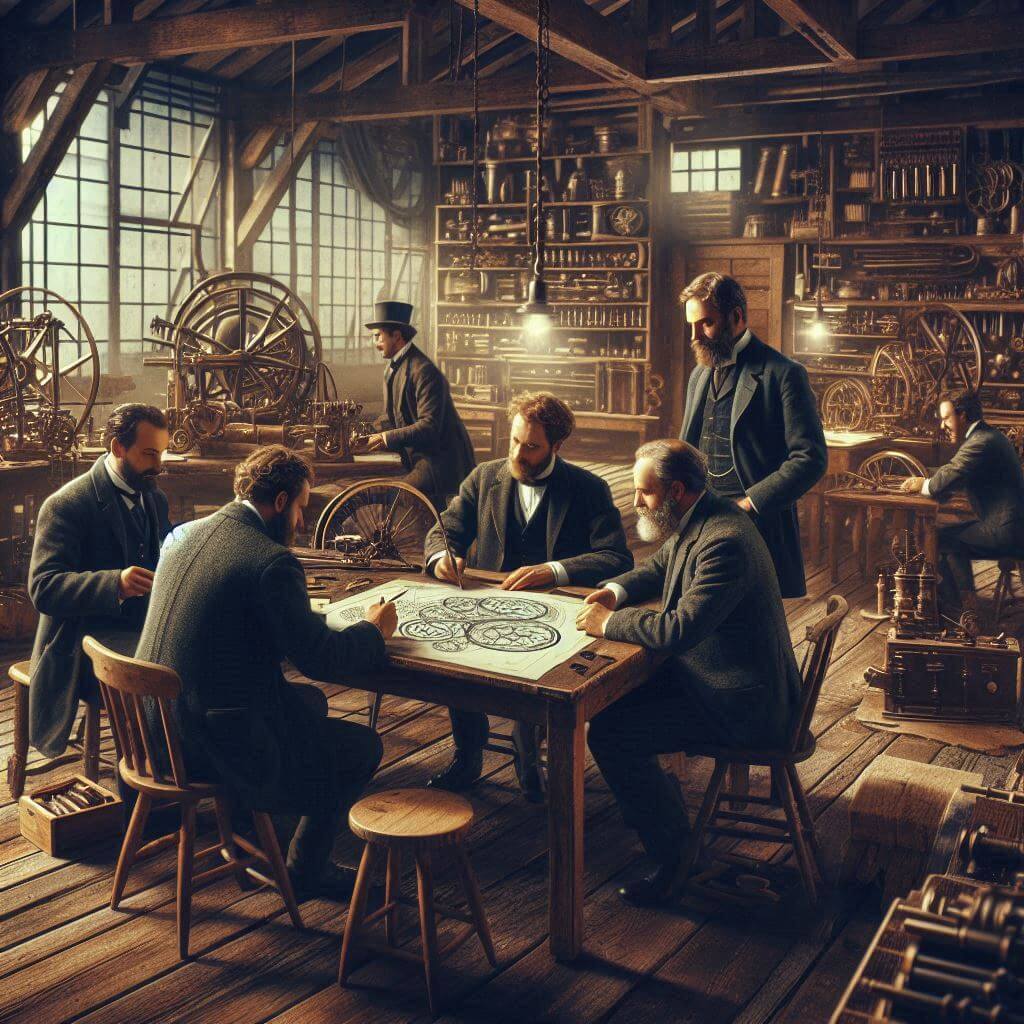What was the First Car Company

The history of the automobile is a fascinating journey that intertwines innovation, ambition, and the spirit of invention. At the heart of this narrative lies the question of which company can be credited as the first car manufacturer. In this article, we will explore the origins of the automobile industry, identify the pioneering car company, and delve into its impact on society and the future of transportation.
Contents
- The Invention of the Automobile
- Pioneering Inventors
- Karl Benz and the Founding of Benz & Cie.
- The Patent Motorwagen: A Revolutionary Design
- Commercial Production and Sales
- Expansion and Innovation
- A Pioneering Legacy: The Evolution of the Car Industry
- Globalization of the Automotive Market
- The Cultural and Social Impact of Automobiles
- Environmental Considerations
The Invention of the Automobile
The roots of the automobile can be traced back to the late 18th century with the invention of steam-powered vehicles. However, the modern automobile, powered by an internal combustion engine, began to take shape in the late 19th century. This era was marked by numerous inventors and creations, leading to a competitive landscape of innovation.
Pioneering Inventors
Before delving into the first car company, it’s vital to acknowledge key inventors who laid the groundwork for modern automotive technology. Figures like Karl Benz, Louis Renault, and Henry Ford played crucial roles in advancing vehicle design and manufacturing processes.
Karl Benz and the Founding of Benz & Cie.
While many inventors were working on prototypes, the title of the first official car manufacturer is widely attributed to Karl Benz. In 1883, he founded Benz & Cie. Rheinische Gasmotorenfabrik Mannheim in Germany. Benz was instrumental in developing the first gasoline-powered automobile, the Benz Patent Motorwagen, which was patented in 1886.
The Patent Motorwagen: A Revolutionary Design
The Benz Patent Motorwagen is often recognized as the first true automobile, differentiating itself from its steam-powered predecessors. With a sleek design and a single-cylinder four-stroke engine, it featured innovative components such as an electric ignition, a high-speed gas engine, and a differential gear. This vehicle marked a significant turning point in automotive history, demonstrating the feasibility and practicality of fuel-powered transportation.
Commercial Production and Sales
In 1888, Benz & Cie. began commercial production of the Patent Motorwagen, signaling the beginning of the automotive industry’s commercial era. Through targeted marketing strategies and a focus on quality, Benz quickly gained popularity among the well-to-do individuals of the time, contributing to the growing interest in automotive technology.
Expansion and Innovation
The success of Benz & Cie. laid the foundation for further advancements in car design and manufacturing. The company hired skilled artisans and engineers to revolutionize the production process. Their innovations included improved braking systems, more comfortable seating, and enhanced engine performance.
A Pioneering Legacy: The Evolution of the Car Industry
Benz’s groundbreaking achievements spurred the creation of numerous other car companies, including Peugeot and Renault in France and the formation of the famous Ford Motor Company by Henry Ford in the United States. This newfound competition led to an explosive growth in the automobile sector, resulting in price reductions, technological improvements, and expanded market reach.
Globalization of the Automotive Market
As the demand for automobiles grew, so did global trade. Countries began to adapt vehicle designs based on local terrains and demands. The rise of mass production techniques, spearheaded by Ford’s assembly line in the early 20th century, revolutionized the industry and intensified competition among manufacturers worldwide.
The Cultural and Social Impact of Automobiles
The advent of the automobile fundamentally changed society, offering individuals an unprecedented level of mobility and freedom. The ability to travel long distances quickly altered how people lived and worked, promoting suburbia and facilitating commerce on a global scale.
Environmental Considerations
As the automobile industry flourished, it also faced challenges such as environmental impact and sustainability. As pollution levels rose and concerns regarding fossil fuel dependency increased, manufacturers began exploring alternative power sources, leading to innovations in electric and hybrid vehicles.
The first car company, Benz & Cie, and the revolutionary designs of Karl Benz set in motion a series of developments that shaped modern transportation. The transition from horse-drawn carriages to motorized vehicles marked a significant milestone in human history, influencing culture, economies, and even urban planning. As we look to the future, the automobile industry is poised to undergo further transformation with advancements in electric vehicles, self-driving technology, and sustainable practices. The legacy of Benz lives on, guiding a future driven by innovation and creativity in the ever-evolving world of automotive engineering.


